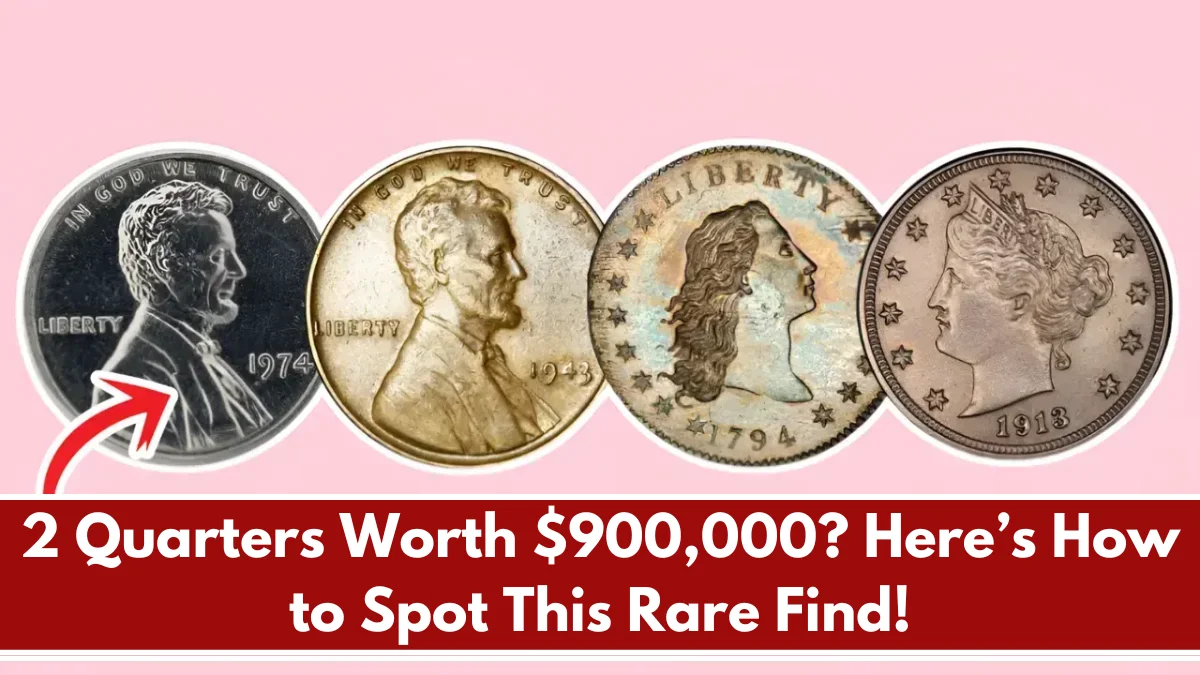Could a humble quarter hiding in your pocket change be worth nearly a million dollars? While it might sound unbelievable, a couple of rare U.S. quarters have fetched astonishing prices at auctions, reaching values of $900,000 or more. These coins are sought after by collectors for their rarity, historical significance, and unique features. In this article, we’ll dive into two extraordinary quarters that have made headlines and show you how to identify them.
1. The 1796 Draped Bust Quarter
The 1796 Draped Bust quarter is one of the most coveted coins in American numismatics. As the first-ever quarter minted in U.S. history, it is a rarity, with only about 6,000 produced. The design features a bust of Lady Liberty on the obverse and an eagle surrounded by a wreath on the reverse. Due to its age and limited mintage, finding one in excellent condition is exceptionally rare.
These 3 Rare Bicentennial Quarters Could Fund Your Retirement!
- Value: Auction records show high-grade 1796 Draped Bust quarters selling for upwards of $1 million, but even lower-grade examples can fetch tens of thousands of dollars.
- Key Identifiers:
- Look for the distinctive “Draped Bust” Liberty design.
- The absence of the “In God We Trust” motto, which wasn’t introduced until later years.
2. The 1932-D Washington Quarter
While not as old as the Draped Bust, the 1932-D Washington quarter is a modern rarity. This coin was part of the first series of Washington quarters and was minted in small quantities—only about 436,800 coins were struck at the Denver Mint. The 1932-D is particularly valuable in mint-state condition, with pristine examples selling for over $90,000.
- Value: A pristine 1932-D Washington quarter can sell for over $90,000.
- Key Identifiers:
- Look for the “D” mintmark located on the reverse, beneath the eagle.
- Inspect the coin’s condition; quarters with sharp details, minimal wear, and no damage are significantly more valuable.
How to Spot Rare Quarters
- 1796 Draped Bust Quarter: Look for the Draped Bust design and the absence of “In God We Trust”. Due to its rarity, even lower-grade examples can hold significant value.
- 1932-D Washington Quarter: Check for the D mintmark beneath the eagle on the reverse. Coins in excellent condition with minimal wear are the most valuable.
FAQs
- How do I know if my quarter is valuable?
- Start by identifying the year, mintmark, and condition. Rare dates, low mintages, and excellent condition often signal value.
- Where can I find the mintmark on a quarter?
- The mintmark is usually located on the reverse (back) side, near the bottom, below the eagle or wreath.
- Should I clean my rare coins?
- No. Cleaning coins can significantly reduce their value. Collectors and graders prefer coins in their original state.
- How can I get my quarter appraised?
- Take it to a reputable coin dealer or have it graded by professional services like PCGS or NGC.
- Are all old quarters valuable?
- Not necessarily. While age can add value, rarity, minting errors, and condition are the most critical factors.
Conclusion
The 1796 Draped Bust quarter and 1932-D Washington quarter are two shining examples of how rare coins can hold immense value. If you have old quarters lying around, it’s worth taking a closer look. A simple discovery could turn into a life-changing find. Always handle rare coins with care, and consider having them professionally appraised or graded to unlock their full potential at auction!

